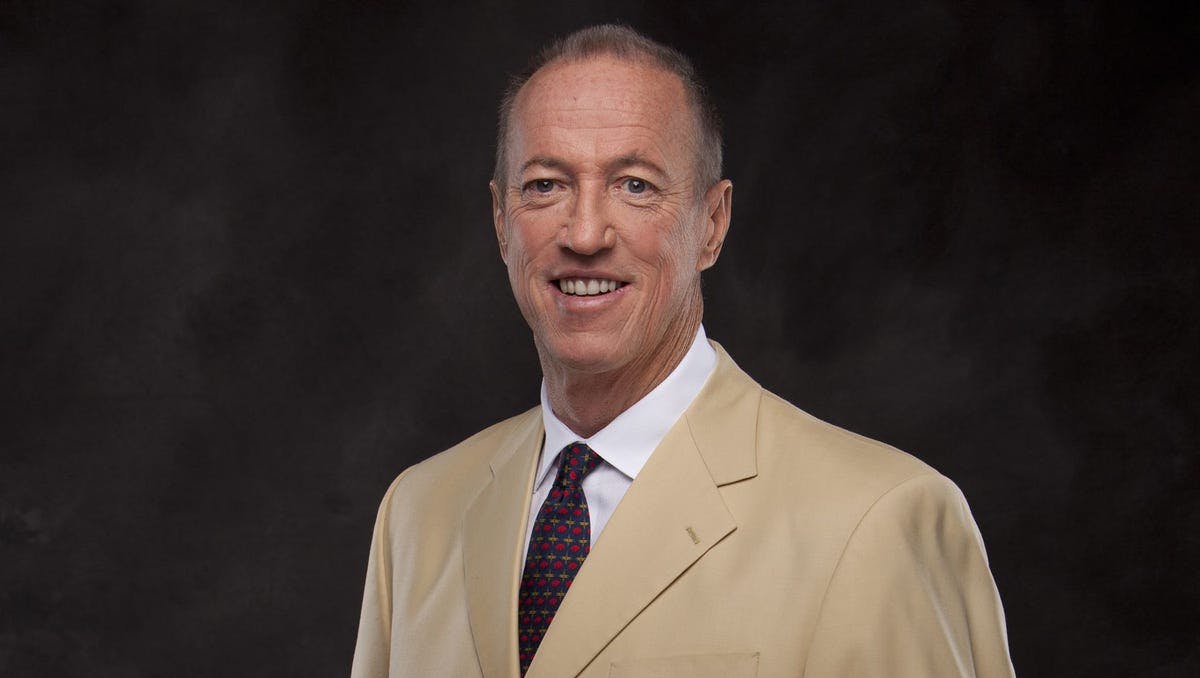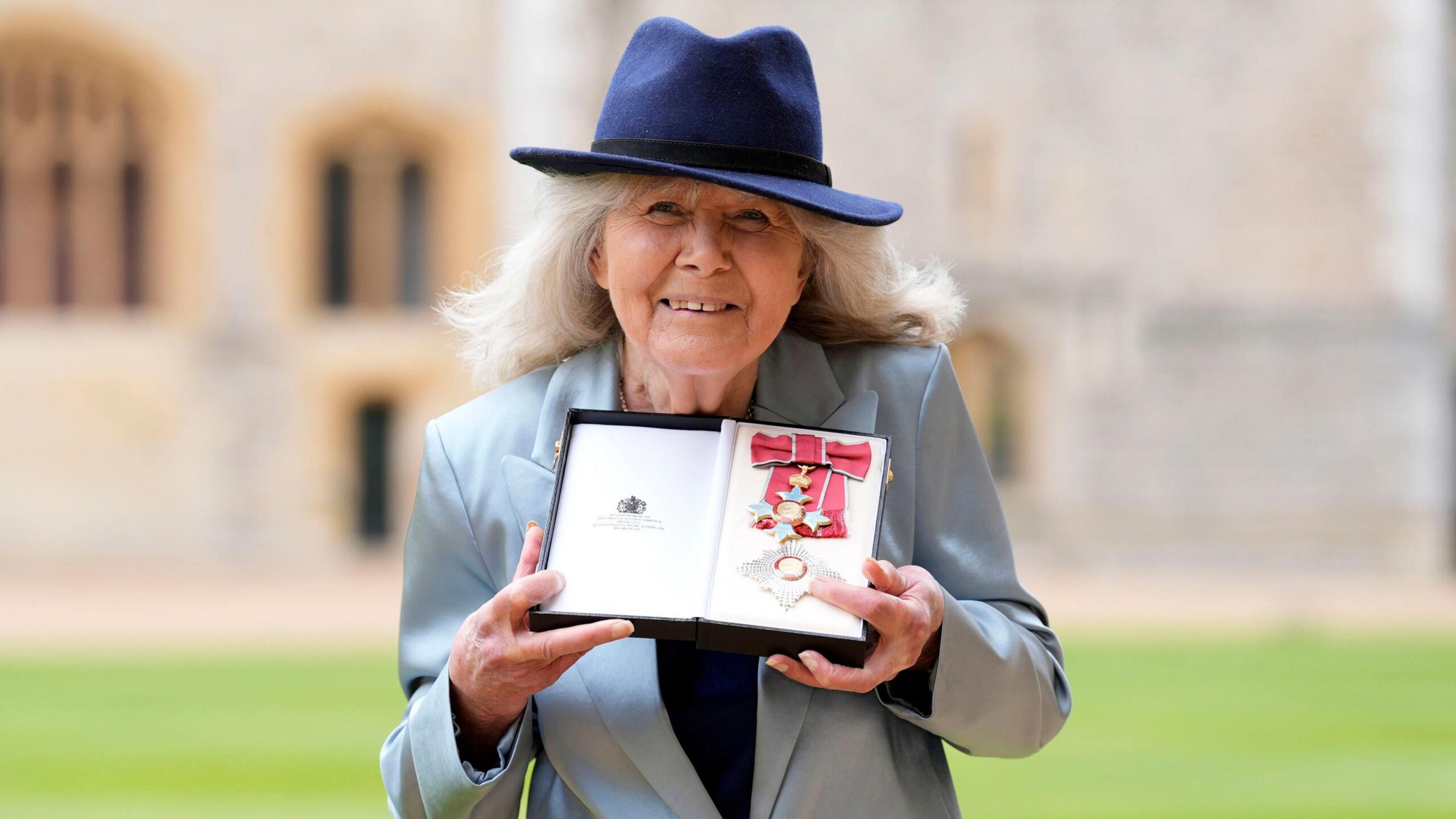Introduction: A Life Devoted to the Red and Black
In the heart of Cincinnati, where the Ohio River winds lazily past the rolling hills of southwestern Ohio, there exists a bond that transcends generations—a bond forged in the crisp autumn air of Nippert Stadium, under the floodlights that illuminate the passion of college football. On October 12, 2025, that bond felt a profound fracture.
Jim Kelly Jr., a man whose name is synonymous with the University of Cincinnati Bearcats, passed away at the age of 72, surrounded by the family he cherished and the love of a community he helped define. His death, after a valiant battle with cancer, marks the end of an era, but it also serves as a poignant reminder of a legacy that will echo through the corridors of Nippert Stadium for decades to come.
Jim Kelly Jr. was more than a football player; he was a bridge between eras, a voice in the ether of radio waves, and the living embodiment of Bearcat pride. Born into a family steeped in the traditions of UC athletics, he grew up dodging footballs on the practice fields, absorbing the lessons of grit and loyalty from his father, the legendary Jim Kelly Sr.
As a wide receiver who terrorized defenses from 1973 to 1975, a brief professional hopeful with the Chicago Bears, a graduate assistant coach, and ultimately, a radio color analyst for 35 unforgettable years, Kelly Jr. wove himself into the fabric of Cincinnati football. His career wasn’t just about stats or broadcasts; it was about stories—stories of triumph, heartbreak, and unyielding devotion.
The news of his passing spread like wildfire through the Queen City on that somber Monday morning, October 13, 2025. Social media timelines filled with tributes from former players, broadcasters, and fans alike. “No one loved the University of Cincinnati more,” proclaimed UC Athletic Director John Cunningham in a heartfelt statement. Dan Hoard, Kelly’s longtime broadcast partner, echoed the sentiment: “Working with Jim was one of the greatest joys of my professional life.”
As the Bearcats prepared for their inaugural Big 12 season under head coach Scott Satterfield, the shadow of loss loomed large, but so too did the light of remembrance. This is the story of Jim Kelly Jr.—a son of Cincinnati, a Bearcat through and through, whose life was a testament to the enduring spirit of college athletics.
In the pages that follow, we delve deep into the tapestry of his extraordinary journey: from his boyhood days as a ball boy in the 1960s, through his stellar playing career that cemented his place in the James P. Kelly UC Athletic Hall of Fame, to his seamless transition into the broadcast booth where he chronicled the Bearcats’ evolution from independents to conference champions. We’ll explore the man behind the microphone—the family man, the musician, the unwavering supporter—who touched countless lives with his warmth, wisdom, and wit. this tribute aims to honor not just the legend, but the human being whose passion for the Bearcats illuminated the lives of so many.
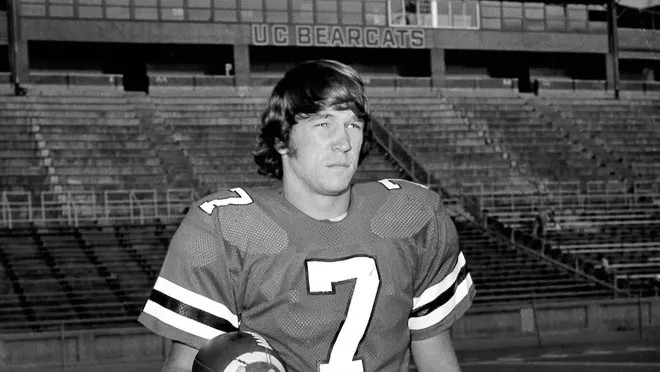
Early Life: Roots in the Red and Black
James Patrick Kelly Jr. entered the world on a crisp spring day in 1953, in the bustling city of Cincinnati, Ohio—a place where baseball’s Reds ruled the summer nights and football’s Bearcats stirred the fall winds. His father, Jim Kelly Sr., was already a towering figure in UC athletics, having starred as an end for the Bearcats from 1947 to 1950.
Those were formative years for the program, marked by the school’s first bowl appearances in the Sun Bowl and the Gulf Coast Conference games. Kelly Sr. wasn’t just a player; he was a coach, an administrator, and eventually, the namesake of the UC Athletic Hall of Fame itself—the James P. Kelly Hall of Fame. It was a legacy that young Jim Jr. could no more escape than the humid Ohio summers.
Growing up in the Hyde Park neighborhood, a stone’s throw from the University of Cincinnati’s campus, Jim Jr.’s childhood was a whirlwind of athletic immersion. Nippert Stadium, with its historic horseshoe configuration and echoes of Jimmy Nippert’s tragic memory, became his playground. By the age of 10, in the mid-1960s, Jim was a ball boy for the Bearcats, scampering across the sidelines to retrieve errant kicks and passes.
He remembered the smell of fresh-cut grass mingled with the sweat of linemen, the roar of sparse crowds on Saturdays when attendance dipped below 10,000 during lean years. “My dad would bring me to practices,” Jim later recounted in a 2015 interview with the Cincinnati Enquirer, “and I’d sit there with a notepad, sketching plays. I thought every kid’s dad coached college football.”
Those early days instilled in him a reverence for the game that went beyond mere fandom. The Kelly household was a hub for UC coaches and players—names like Homer Rice, who led the Bearcats to a Tangerine Bowl victory in 1961, and later, the innovative Paul Dietzel, whose tenure in the 1970s would coincide with Jim’s playing days. Jim Sr.
served as an assistant under Rice, helping to rebuild a program that had struggled post-World War II. Stories of the 1949 Sun Bowl, UC’s first postseason triumph, were bedtime tales, laced with lessons on perseverance. “Football isn’t about the wins,” Jim Sr. would say, “it’s about the fight in the dog.” Those words echoed in Jim Jr.’s young ears, shaping a boy into a man who would embody that ethos.
High school brought Jim to Moeller High School, a powerhouse in Cincinnati’s Catholic league, where he honed his skills as a wide receiver. Graduating in 1972, he was a three-year letterman, leading the Crusaders to back-to-back state semifinals. His senior year stats—over 800 receiving yards and 10 touchdowns—drew scouts from across the Midwest. But for Jim, the choice was never in doubt. Amidst overtures from Big Ten schools like Ohio State and Purdue, he signed with his hometown Bearcats. “Why go anywhere else?” he quipped years later. “Nippert was my backyard. UC was family.” It was a decision that would launch him into Bearcat immortality.
Collegiate Career: Lighting Up Nippert Stadium (1973-1975)
The fall of 1973 dawned with promise for the University of Cincinnati Bearcats. Under head coach Paul Dietzel, a Southern drawl with a penchant for military precision, the team aimed to reclaim relevance in the Missouri Valley Conference. Into this mix stepped sophomore wide receiver Jim Kelly Jr., a lanky 6-foot-2 frame with hands like magnets and speed that turned cornerbacks into statues. From his first varsity snap against the Louisville Cardinals, Kelly announced his arrival. Hauling in a 45-yard touchdown pass from quarterback Mike Woods, he sparked a 28-17 upset victory, igniting a fanbase weary from years of mediocrity.
That season, Kelly led the team with 42 receptions for 682 yards and seven touchdowns—numbers that, in an era of run-heavy offenses, were nothing short of revolutionary. The Bearcats finished 6-5, their best record in a decade, and Kelly’s chemistry with Woods became the stuff of legend. “Jimmy had this way of finding the soft spots in coverage,” Woods recalled in a 2020 Bearcats reunion podcast. “I’d throw it up, and he’d make the catch look easy. But it was his work ethic—endless routes after practice—that separated him.”
1974 brought even greater heights. As a junior, Kelly exploded for 58 catches, 912 yards, and 11 scores, earning All-Missouri Valley honors and a nod to the All-American third team. The Bearcats, bolstered by a stout defense led by future NFLer Mike Martin, went 7-4, capping the year with a thrilling 24-21 win over Miami (OH) in the rivalry game. Kelly’s iconic moment came against Tulsa, where he snagged a one-handed grab over a leaping defender for a 65-yard touchdown, a play still replayed on UC highlight reels. “That was pure instinct,” Kelly said humbly. “But it was for my dad, watching from the press box. He taught me to play fearless.”
His senior year in 1975 was a crescendo. With 62 receptions for 1,024 yards and 12 touchdowns, Kelly shattered UC single-season records, finishing his career with 162 catches for 2,618 yards and 30 touchdowns—marks that stood for over two decades. The Bearcats slipped to 5-6, but Kelly’s leadership shone. He mentored freshmen like future starter Greg Sample and organized team Bible studies, blending his Catholic roots with a deepening faith. Inducted into the James P. Kelly Hall of Fame in 1998, his plaque reads: “A receiver with grace, a leader with heart.”
Off the field, Kelly was the quintessential student-athlete. Majoring in business administration, he maintained a 3.2 GPA while volunteering at local youth camps. His humility endeared him to coaches; Dietzel called him “the glue that held our passing game together.” As graduation neared in 1976, NFL scouts buzzed. The Chicago Bears selected him in the 12th round of the 1976 draft, a dream realized. But football’s cruelties loomed.
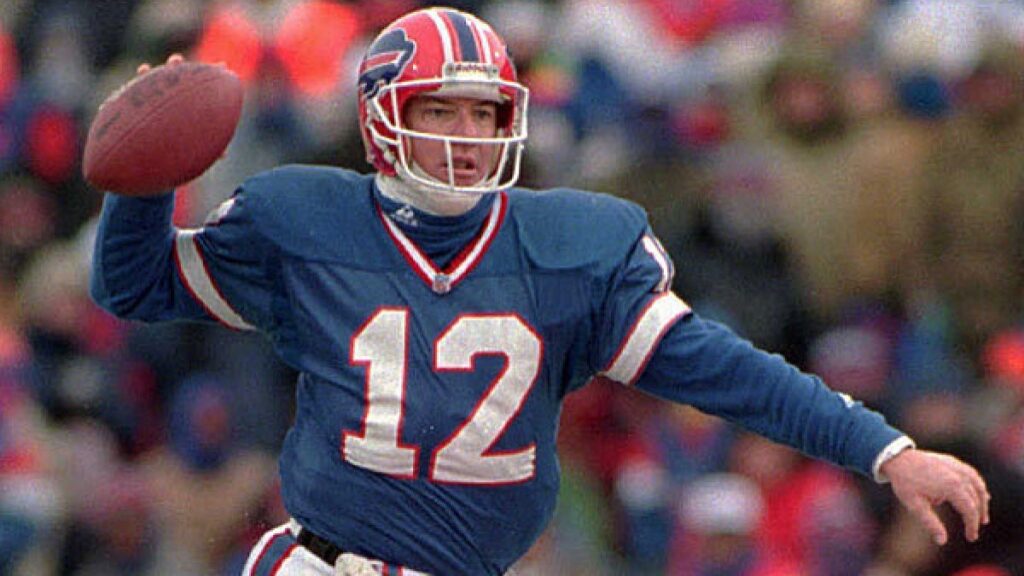
The Pro Dream and Pivot: From Bears to Bearcats Booth
The summer of 1976 was a blur of promise for Jim Kelly Jr. Signing a three-year contract with the Chicago Bears, he arrived at training camp in Lake Forest, Illinois, eyes wide at the pros: Walter Payton thundering through holes, Dick Butkus barking orders. As a rookie wideout behind hall-of-famer Harlon Hill’s successors, Kelly impressed in preseason, snagging five catches for 78 yards against the Eagles. “Jimmy’s got that college polish,” Bears coach Jack Pardee noted. But in the third exhibition game versus the Chiefs, disaster struck—a vicious hit on a crossing route tore his ACL, sidelining him for the season.
Rehab was grueling, a six-month odyssey of ice baths and endless therapy in a Windy City hospital. “I thought my career was over before it started,” Kelly admitted in a 2005 memoir excerpt published in Bearcats Magazine. Released by the Bears in 1977, he returned to Cincinnati a changed man—humbled, resilient, and ready to give back. Enrolling in graduate school for an MBA, he joined Dietzel’s staff as a graduate assistant, coaching wide receivers with the same fervor he’d shown as a player. “Teaching those kids the nuances—the footwork, the reads—it healed me,” he said.
By 1978, business called. Kelly landed a role at Procter & Gamble, rising through sales and marketing ranks, eventually becoming a regional director for consumer goods. He married his college sweetheart, Sarah O’Malley, in 1979, and they settled in Montgomery, Ohio, raising four sons: Kevin, Dave, Scott, and Brian. Family life grounded him; weekends were for coaching youth leagues, where he’d regale kids with tales of Nippert glory. But football’s pull was inexorable. In 1988, when UC radio network sought a color analyst to pair with play-by-play man Paul Keels, Kelly’s name topped the list. “Who better?” Keels said. “He lived it.”
The Voice of the Bearcats: 35 Years in the Booth
Stepping into the broadcast booth at Nippert Stadium in 1988 was like returning home for Jim Kelly Jr. The air was thick with the scent of hot dogs and fresh paint—the stadium’s ongoing renovations a metaphor for the program’s rebirth. Paired with Keels, a silver-tongued maestro, Kelly’s role was simple: provide color, context, and unbridled enthusiasm. He delivered in spades. His first broadcast, a 27-24 loss to West Virginia, saw him dissect a crucial fourth-quarter interception with surgical precision, blending stats with storytelling. “That’s the kind of play that breaks hearts in Morgantown,” he opined, his baritone voice carrying over AM waves to bars and basements across the tristate area.
The early years were lean—UC football wandered as an independent after leaving the Missouri Valley in 1972, scraping together 3-8 records under coaches like Dave Currey. Kelly chronicled it all, his optimism a beacon. “These kids are fighting,” he’d say after a gut-wrenching defeat, “and that’s Bearcat tough.” A brief hiatus from 1992-1994, when business demands peaked, only heightened anticipation for his return in 1995 alongside George Von Benko. By then, Rick Minter’s arrival as head coach signaled change; the 1996 season’s 6-5 finish hinted at brighter days.
The late 1990s and early 2000s were Kelly’s golden era in the booth. Joining the Big East in 2005, UC surged under Brian Kelly (no relation), winning conference titles in 2008, 2009, and 2011. Kelly Jr. called them all—the 2008 upset of Oklahoma in the Orange Bowl, where tight end Tony Pike connected with wideout Dominick Goodman for a game-tying score. “Pike to Goodman… touchdown Bearcats! Unbelievable!” His call, laced with 30 years of pent-up joy, became instant lore. He bridged eras, reminiscing about 1975’s grit during 2011’s Sugar Bowl run, where Isaiah Pead’s 159 yards sealed a 48-34 rout of Vanderbilt.
Through the lean spells—like the 2013-2018 Tommy Tuberville years, mired in mediocriety—Kelly remained steadfast. “Football’s a marathon,” he’d remind listeners, “not a sprint.” His partnership with Dan Hoard, starting in 1999, was symbiotic: Hoard’s rapid-fire play-by-play complemented Kelly’s encyclopedic knowledge. Together, they narrated the Luke Fickell renaissance: the 2018 upset of UCF, the 2020 perfect regular season, and the euphoric 2021 Peach Bowl berth, UC’s first College Football Playoff appearance. “Sauce Gardner just picked that six! Bearcats are playoff-bound!” Kelly’s voice cracked with emotion, a rare crack in his composed facade.
Even as Big 12 entry in 2023 brought new challenges—losses to Michigan and Oklahoma State—Kelly ushered in Scott Satterfield’s era. His final broadcast, UC’s 70-0 demolition of Northwestern State on September 13, 2025, was a fitting swan song: three touchdowns called with vintage vigor. Diagnosed with pancreatic cancer earlier that year, he’d stepped away to focus on treatment, but his absence felt like a missing heartbeat. “Jim’s voice was the soundtrack of my Saturdays,” fan @BearcatFaithful tweeted. “Nippert won’t sound the same.”
Kelly’s broadcast style was understated genius: anecdotes from dad’s 1949 bowl team, breakdowns of X’s and O’s, and infectious laughter. He avoided hyperbole, letting the game speak. Off-mic, he mentored young analysts, hosted tailgates, and even jammed on guitar with his band, Ooh La La & The Greasers, covering Motown hits at alumni events. “Broadcasting was my ministry,” he said in a 2022 podcast. “Connecting fans to the why behind the what.”
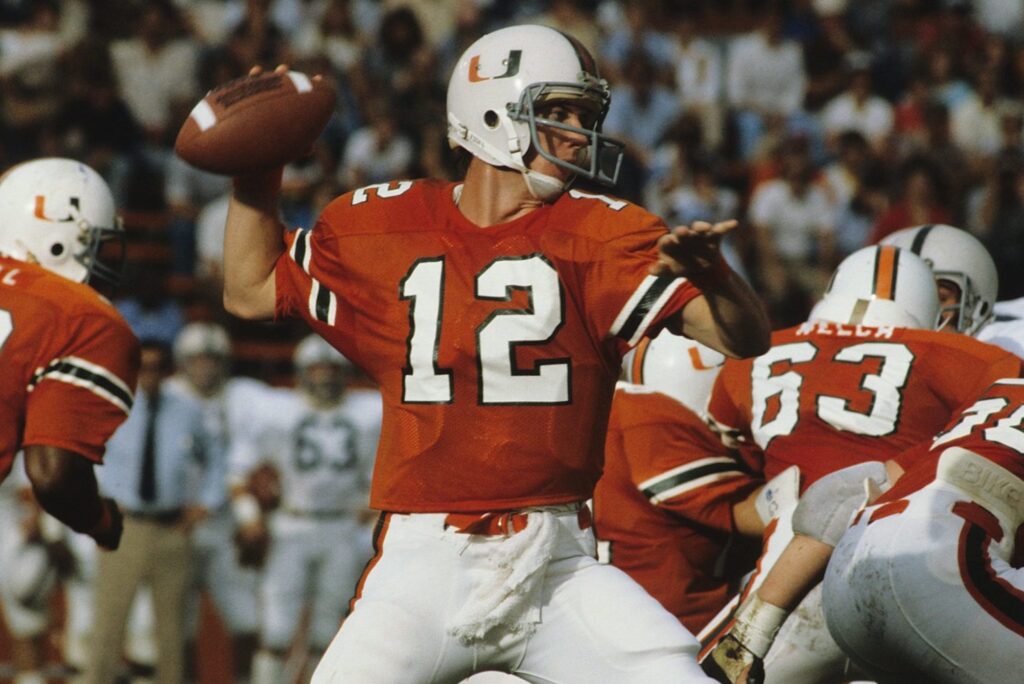
The Family Man and Beyond: Layers of a Legend
Behind the headset was a man of quiet depth. Sarah, his wife of 46 years, was his anchor— a former UC cheerleader whose quick wit matched his. “She kept me honest,” Jim joked, crediting her for navigating his post-injury blues. Their sons carried the torch: Kevin, a Cincinnati financial advisor and youth coach; Dave, a high school teacher in Mason; Scott, an engineer in Dayton who played receiver at Xavier; and Brian, the youngest, a musician echoing his dad’s guitar strums. Grandkids—seven in all—filled holidays with chaos, Jim leading sing-alongs to “Sweet Caroline” adapted for Bearcats chants.
Faith was Kelly’s compass. A devout Catholic, he and Sarah tithed to St. Gertrude Parish, where he coached altar boys’ soccer. His 1975 Bible studies evolved into annual retreats for former teammates, fostering bonds that lasted lifetimes. “God gave me football to teach me about grace,” he reflected in a 2010 Enquirer profile.
Musically inclined, Kelly’s band gigs at local dives added levity. “Ooh La La” covered The Beatles and The Temptations, Jim’s solos drawing cheers rivaling Nippert’s. “It’s therapy,” he said. “Reminds me life’s a jam session—improvise, but stay in key.”
Business acumen shone too; by retirement in 2015, he’d consulted for startups, mentoring UC MBAs. Philanthropy marked him: fundraising for Nippert renovations, scholarships in his father’s name. In 2020, during COVID, he hosted virtual pep rallies, boosting spirits amid empty stands.
Tributes and Lasting Impact: Echoes in the Community
News of Kelly’s passing on October 12, 2025, after months of chemotherapy, stunned the Bearcat nation. UC’s statement captured the grief: “Our hearts are with the Kelly family. Jim embodied Bearcats football.” Teammates from 1975 reunited that weekend at a booster event, sharing laughs and tears—Mike Woods toasting, “To Jimmy, our eternal captain.”
Dan Hoard’s eulogy was poetic: “Jim linked generations—from my dad’s era to Sauce Gardner’s. No one loved UC more.” Fans flooded social media: #ThankYouJim trended, with 50,000 posts by midday October 13. Governor Mike DeWine ordered flags at half-staff over UC, calling Kelly “Ohio’s ambassador of spirit.”
The October 25 home game versus Baylor will honor him—a helmet sticker, moment of silence, and halftime tribute featuring his sons. Legacy projects loom: a broadcast booth named in his honor, scholarships for communicators.
Kelly’s impact? Transformative. He humanized the game, turning stats into sagas. As Cunningham said, “He stood through thick and thin.” In an era of transient athletes, Kelly was eternal.
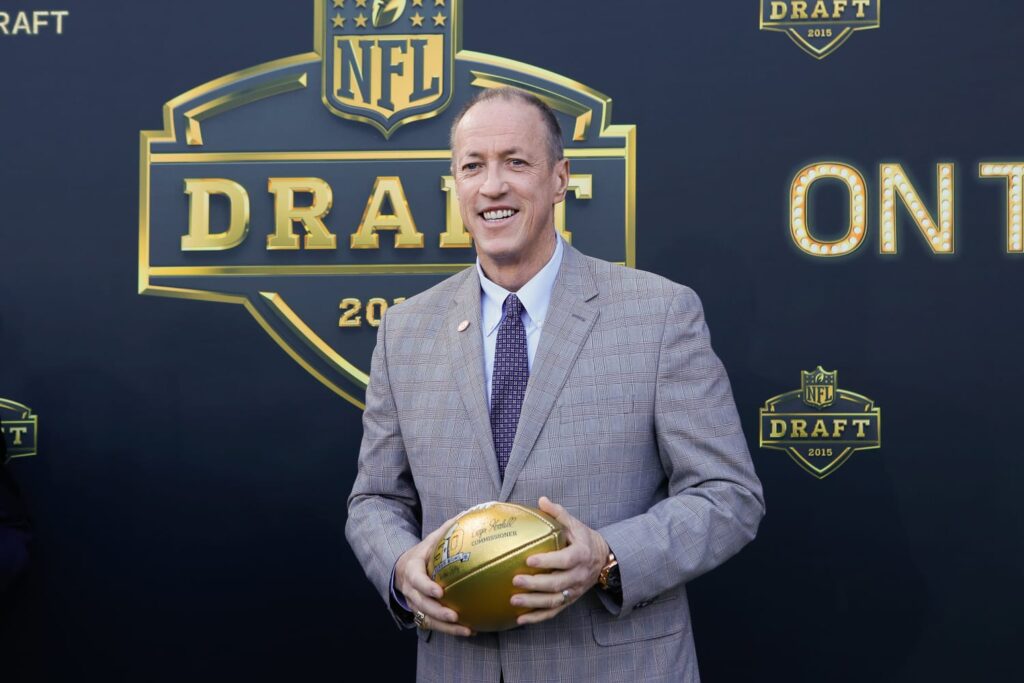
Conclusion: A Final Call from the Booth
As the sun sets over Nippert on October 14, 2025, one imagines Jim Kelly Jr. in that ethereal booth, headset on, calling an eternal game. “And the Bearcats drive into the end zone… touchdown! That’s for Cincinnati, for family, for forever.” His voice fades, but the echo lingers—a reminder that true legends don’t pass; they inspire. Rest easy, Jim. You’ve earned your ring in the Hall above. The Bearcats—and all who loved you—salute.

